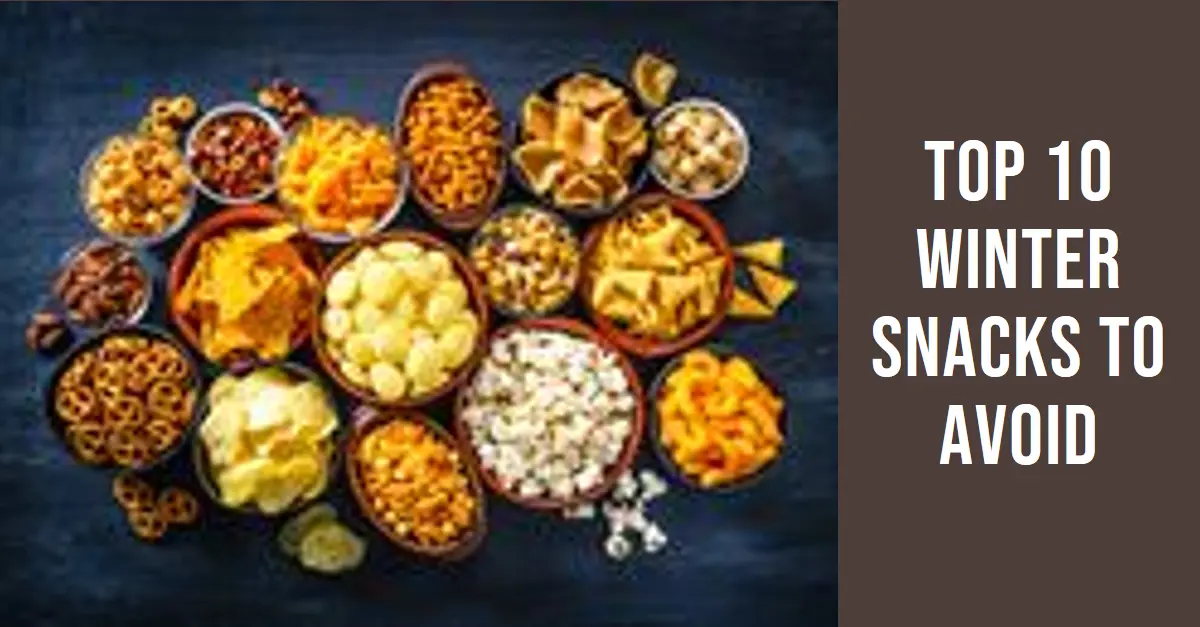During winter, the consumption of energy drinks laden with caffeine and sugar poses risks like dehydration and sleep disruption detrimentally affecting overall well-being. Excessive intake may result in energy crashes and compromise immune function, exacerbating the challenges of the colder season. In lieu of such beverages, opting for hydrating alternatives becomes crucial. Choosing nourishing options not only supports hydration but also ensures a more balanced and immune-friendly diet enhancing the body’s resilience during the winter months. Making mindful choices in beverage consumption can contribute significantly to maintaining optimal health in colder climates.
Candy and Sweets
Excessive consumption of candy and sweets during winter can weaken your immune system and lead to energy crashes. High sugar intake is linked to a range of health issues and may compromise your body’s ability to combat seasonal illnesses. Opt for healthier snack alternatives to support your overall well-being during the colder months. Instead try to buy mouth freshener online.
Sugary Hot Drinks
Avoid sweetened hot drinks in winter; they’re often high in sugar. Flavoured lattes and sugary hot chocolate can contribute to excessive calorie intake impacting overall health. Opt for unsweetened alternatives to maintain a balanced diet and avoid unnecessary sugar-related health issues during the colder months.
Deep-Fried Snacks
In the winter, it’s wise to steer clear of deep-fried snacks like chips and samosas due to their high unhealthy fat content, which can lead to undesirable weight gain. Choosing healthier alternatives is essential to uphold a balanced diet and promote overall well-being during the colder months. Opt for nutrient-dense options such as nuts, fresh fruits, or vegetable sticks with hummus to ensure you’re providing your body with essential vitamins and minerals without compromising on taste or satisfaction.
Salty Snacks
Salty snacks like certain chips and pretzels are high in sodium. In winter, excessive sodium intake can exacerbate dehydration, a common issue in dry, cold weather. Consuming too much salt may contribute to increased thirst and water retention, potentially straining the cardiovascular system. It’s advisable to be mindful of sodium levels to maintain proper hydration and overall health during the winter season.
Soda and Carbonated Beverages
Avoid excessive consumption of soda and carbonated beverages during winter. These drinks can be dehydrating, potentially exacerbating the effects of dry winter weather. High sugar content and caffeine can contribute to dehydration, negatively impacting overall health. Opt for hydrating alternatives like water, herbal teas, or warm beverages without added sugars and caffeine to support proper hydration and well-being during the colder months.
Processed Meats
Processed meats, like sausages and certain jerkies often contain preservatives and additives. These substances can be detrimental to health contributing to issues like inflammation and potential health risks. Opting for less processed leaner protein sources is advisable as they provide essential nutrients without the drawbacks associated with the additives commonly found in processed meats.
Ice Cream
Ice cream is not an ideal winter snack due to its cold temperature, potentially causing discomfort in colder weather. Additionally, it is often high in sugar and fat which may not align with a balanced and healthy diet. Choosing warmer nutrient-dense options during winter is advisable to support overall well-being and avoid potential discomfort associated with consuming cold treats.
Excessively Spicy Foods
Consuming excessively spicy foods during winter may lead to digestive discomfort. While some enjoy the heat an overindulgence can irritate the digestive system causing discomfort in colder weather. It’s essential to strike a balance as moderation in spicy food intake is advisable to prevent potential digestive issues and maintain overall well-being during the winter season. Instead, you can buy healthy snacks online in India.
Highly Processed Snacks
Snacks with a long list of artificial ingredients, preservatives, and additives may not support your immune system as effectively as whole minimally processed foods. These snacks often contain preservatives and artificial ingredients that may not support the immune system. Choosing whole minimally processed foods is preferable as they provide more nutritional value and contribute to overall health especially during the winter season when immune support is crucial.
Energy Drinks
Energy drinks are high in caffeine and sugar and can be dehydrating and disrupt sleep by compromising overall well-being during the winter. Excessive consumption may lead to energy crashes and negatively impact immune function. Opting for hydrating and nourishing alternatives is advisable for maintaining health in colder weather.
Summarize
Maintaining a healthy diet during winter is crucial for overall well-being. Cold weather can weaken the immune system, making the body more susceptible to illnesses. Nutrient-rich foods, including fruits, vegetables, and whole grains, provide essential vitamins and minerals that support immune function. Additionally, staying hydrated is vital as the cold weather can lead to increased fluid loss. A balanced diet helps regulate energy levels, combat seasonal fatigue, and manage weight.




